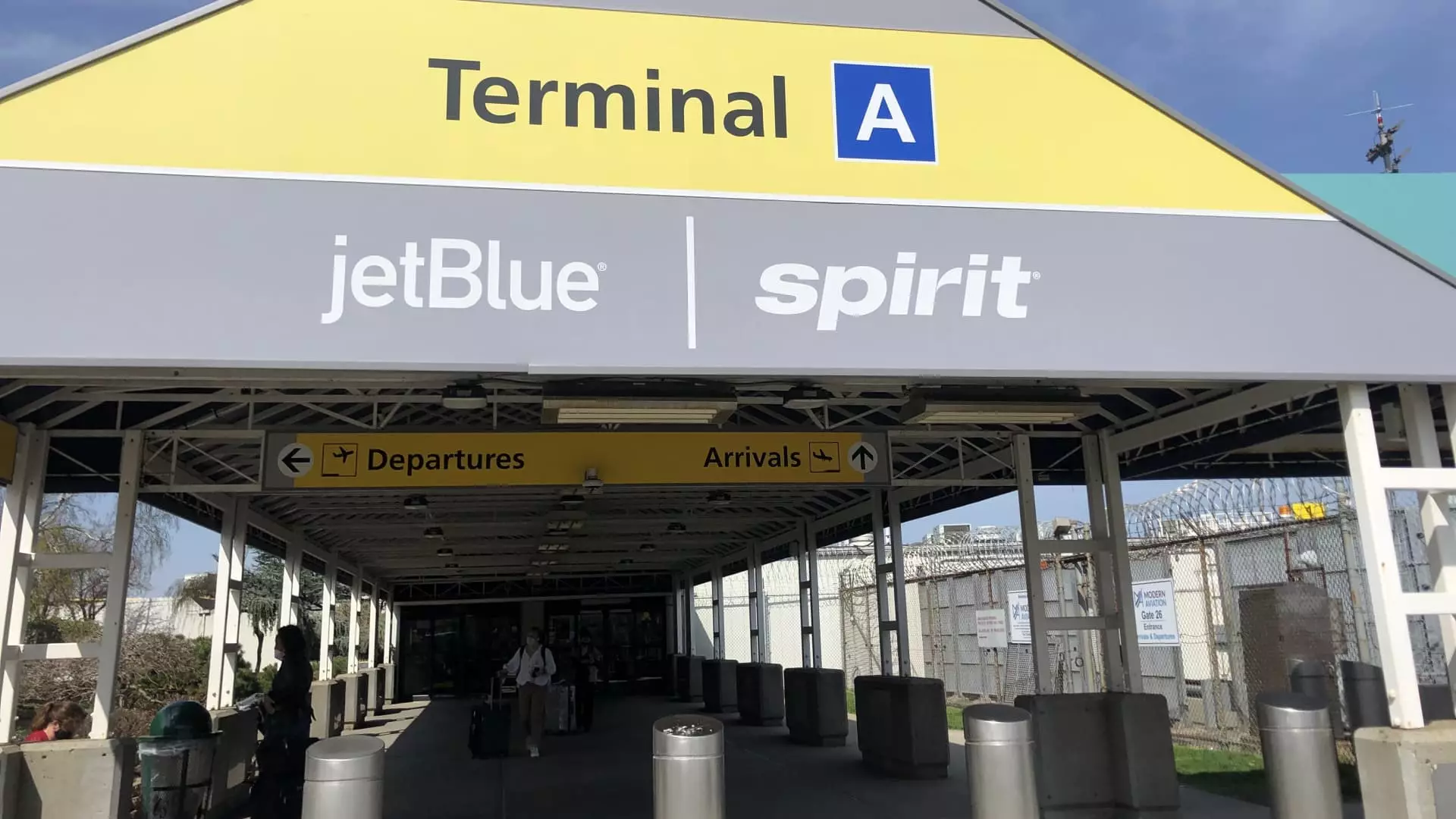In a significant turn of events, a federal judge has blocked JetBlue Airways’ proposed acquisition of budget airline Spirit Airlines following a lawsuit filed by the Justice Department. The lawsuit challenged the merger, claiming that it would lead to higher fares for the price-sensitive consumers. The decision, handed down by U.S. District Court Judge William Young, marks a victory for the Justice Department, which has been actively opposing mergers that it deems as anticompetitive.
JetBlue’s $3.8 billion acquisition of Spirit would have created the fifth-largest airline in the United States, enabling the carriers to better grow and compete against larger rivals like Delta and United. JetBlue had intended to convert Spirit’s planes into the JetBlue layout and charge its customers higher fares. However, Judge Young’s verdict highlighted that the elimination of Spirit would negatively impact cost-conscious travelers who rely on the airline’s low fares.
Following the court ruling, Spirit Airlines’ shares plummeted, experiencing a decline of over 50%. In contrast, JetBlue’s stock saw a 5% increase. The market response reflects the market’s anticipation of the deal’s success and JetBlue’s disappointment with the verdict.
JetBlue and Spirit jointly expressed their disagreement with the court’s ruling and stated that they were evaluating their next steps. They firmly believed that the merger would foster healthy competition and provide consumers with more choices, while allowing both airlines to challenge the dominance of major carriers in the United States. The statement emphasized JetBlue’s ongoing commitment to delivering low fares and exceptional service.
Previous Antitrust Rulings against JetBlue
This is not the first time JetBlue has faced antitrust obstacles. In 2020, another U.S. District Court judge in Massachusetts ruled against JetBlue in favor of the Justice Department, preventing its regional alliance with American Airlines in the Northeast. The alliance aimed to coordinate routes and schedules, enhancing both airlines’ competitiveness. JetBlue and Spirit argued that rectifying previous anticompetitive concerns would address the Department of Justice’s objections.
With the merger now blocked, JetBlue finds itself at a crossroads. Incoming CEO Joanna Geraghty will assume the challenging task of charting a revised course for the airline. JetBlue had planned to utilize Spirit’s fleet of Airbus planes to expand its routes and cater to more travelers when aircraft and pilot availability were limited. This growth was crucial for JetBlue’s ability to compete against industry giants in congested markets like New York. However, the blocked acquisition necessitates the airline to revisit its growth strategy.
For years, airline consolidation has resulted in United, Delta, American, and Southwest collectively controlling approximately three-quarters of the U.S. domestic market. JetBlue’s merger with Spirit aimed to counterbalance the power of these dominant carriers. The acquisition would have allowed JetBlue to remodel Spirit’s planes to resemble its own branding, transitioning from a budget airline model to a full-service one. Spirit Airlines had gained popularity by offering inexpensive fares combined with additional fees for various services.
While the Justice Department’s decision to block the merger aligns with its efforts to preserve competition and protect consumer interests, it also raises questions. Some argue that increased consolidation limits consumer choice and may lead to higher fares. On the other hand, proponents of mergers claim that they generate economies of scale and promote efficiency in the industry, ultimately benefitting consumers with improved services and competitive pricing. Striking the right balance between consolidation and competition remains a critical challenge for the airline industry.
The federal court’s ruling to block JetBlue’s acquisition of Spirit Airlines highlights the ongoing concerns regarding antitrust and anti-competitive practices in the industry. JetBlue now faces the challenge of charting a new growth path without Spirit’s resources and routes. The outcome underscores the importance of promoting competition while safeguarding the interests of cost-conscious travelers. As the airline industry continues to evolve, finding the right balance between consolidation and competition will remain a contentious and complex issue.


Leave a Reply